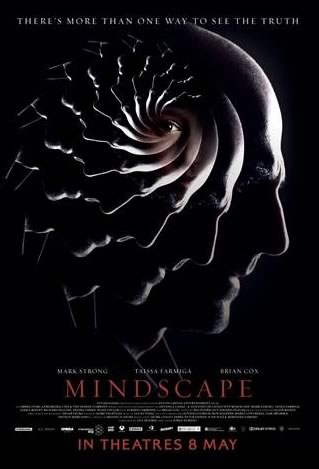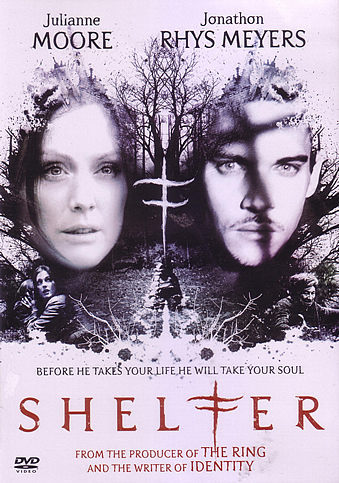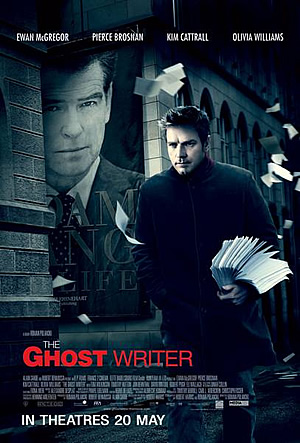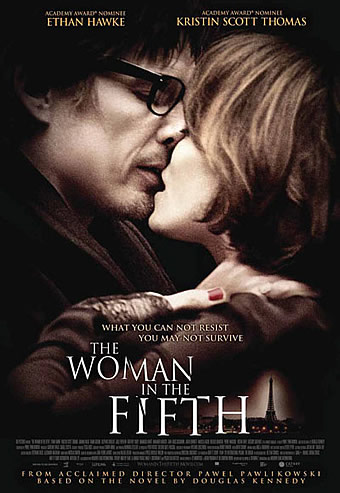PERSONAL SHOPPER (2016)
Genre: Thriller
Director: Olivier Assayas
Cast: Kristen Stewart, Lars Eidinger, Sigrid Bouaziz, Anders Danielsen Lie, Ty Olwin, Nora von Waldstätten, Benjamin Biolay
Runtime: 1 hr 46 mins
Rating: NC-16
Released By: Shaw
Official Website:
Opening Day: 23 March 2017
Synopsis: Maureen is a young American woman in Paris making her living as a personal shopper for a celebrity. Also, Maureen may have the psychic ability to communicate with spirits, just like her twin brother, Lewis, who recently passed away. She soon starts receiving ambiguous messages coming from an unknown source.
Movie Review:
If you didn’t know any better, you could be forgiven for assuming from the movie poster that this is a light-hearted offering, with its sprightly title about fashion purchasing and its choice of leading actress, a young thespian best known for one of the most successful teen fantasy romance adaptations in recent memory. While this couldn’t be further from the truth, Olivier Assayas’ Personal Shopper defies any easy categorisation. On the surface, it appears to be part ghost story, part psychological thriller, maybe even part horror flick. But at its heart, this is an engrossing character study about a woman grappling with a host of personal issues, not least those of grief, alienation and a spiritual search for identity and meaning.
The film starts off with a continental automobile pulling into the front yard of a mysterious old French house, which seems to have all the makings of a horror movie set. Out of the car steps Maureen (played by Kristen Stewart), who we soon learn is purportedly a medium. Her incantations of “Lewis?” while spending the night alone in the house are in fact a bid to summon the spirit of her recently-deceased twin brother, who used to live there with his girlfriend. Maureen has a pact with him: whoever dies first has to try making contact with the other from beyond the grave. After an eerily long night, we witness what seems like a wisp of a spirit but nothing more.
Dissatisfied (just as we are) and wanting more tangible signs, Maureen looks up occult practices of the past, seemingly in a bid to reach out to her brother: these include a certain Swedish mystic-artist, Hilma af Klint, whose art draws its inspiration from supernatural forces, and séances involving Victor Hugo where humans ask questions and spirits respond in a “one thump means yes, two thumps mean no” fashion (the latter mode of communication is referenced and recalled in a final pivotal scene).
Strangely enough, as the film progresses, it defies expectations and moves tangentially away from an exclusively paranormal focus. Maureen continues busying about during her day job as a personal shopper, selecting and fetching high fashion pieces on behalf of Kyra (Nora von Waldstatten), a celebrity who cannot afford the time and public scrutiny to do so in person. It’s a job Maureen appears to detest with every fibre of her being but nonetheless carries out with cold, stoic efficiency as she commutes from one fashion house to another.
Over the course of a shopping trip to London and back to Paris, she receives text messages on her phone from an unidentified source, who seems to know where she is and what she’s doing and interacts with her cryptically. Desperate to latch onto any sign of Lewis, she texts back to ask if it is him and gradually lets her guard down, even though it’s evidently someone else – but who is this cyberstalker? Things happen fast. A murder takes place but who was behind it? How did the items Maureen leave at the crime scene reappear in her apartment? The other supernatural encounters depicted suggest more than one identity behind them, but who else is it or who else are they? What is real and what is imagined (this sense of wonder is most powerfully reinforced in the ending)? New questions are introduced faster than previous ones are resolved, while the confluence of seemingly real ghosts and Maureen’s personal demons deepens the mystery.
If your notions of Stewart’s career have yet to move on from her Twilight days or the cruel internet memes indicting her for stony, expressionless acting, this might just be the film to make you sit up and reconsider your opinions. As the first American actress to have won the César (the French equivalent of the Oscars) for Best Actress in a Supporting Actress in her previous collaboration with Assayas (Clouds of Sils Maria, 2014), as lead character here she amply demonstrates how she has really come to into her own with her performance. In the part of Maureen, she exudes a vulnerability and neuroticism so believable, it’s hard not to imagine that the nervous tics exhibited by her character are a manifestation of her own real-life insecurities (Assayas himself has said in an interview that the screenplay was at least indirectly inspired by her).
Both director and writer, Assayas’ choice to present a “ghost story” through the lens of an unusual profession – that of a personal shopper in the fashion world – is interesting to say the least. At least on some level the decision to juxtapose the anxieties and superficiality of modern day materialism against the non-corporeality of the spiritual meanings and connections Maureen seeks must be deliberate. Through scenes of YouTube videos, Skype sessions and mobile phone texts, Assayas also offers an opportunity to meditate about meaningful communication in this alienating age of technology.
We witness how, as Maureen ponders her own identity and wants and is egged on by the mysterious texts, she surreptitiously sheds her androgynously casual clothes and privately slips into the skin of Kyra via the latter’s glamorous outfits (an act her employer has declared as off-limits). While the taste of forbidden fruit thrills, her sense of self also distorts. We also know that throughout history, twins have been recorded to share intertwined physical and emotional experiences even when apart, and Assayas’ deliberate toying of what is real and what isn’t suggests that Lewis is, at least at times, a metaphor for the other half of being, that undefinable something that Maureen so desperately seeks to complete herself.
Throughout the film, we never quite see Maureen forge any authentic human connections. Firstly, as an alien American aptly transplanted in Paris, her personal interactions with her boyfriend back home are limited to Skype sessions (we wonder how deep is their love anyway – it is clear she doesn’t seek him out as often as she should, not to mention the fact that not once in the film do we see him portrayed in person). Her relationship with her brother’s ex-girlfriend, who, by logic, ought to have been her closest family away from home, seems more functional than warm. In fact, the latter seems to have moved on to a new boyfriend at alarming speed.
Even at work, her interactions with fashion retailers are fleeting and transactional; in the rare scenes she shares with Kyra, the latter hardly bats an eyelid to her presence. Perhaps the greatest irony of all is the fact that Maureen willingly chooses to be at her most vulnerable with arguably the most unnerving “character” – the persona behind the anonymous phone texts, whose role to her vacillates between creepy stalker and unlikely confidante. And they don’t even meet in person (or do they?).
We’ve come to expect at least an artistic scene or two of nudity and/or sex in French arthouse, but here, these scenes are almost devoid of any sensuality. When Maureen appears naked, it often feels more clinical than sexual: either in scenes where she disrobes to try on Kyra’s couture pieces, or in one scene where she is taking a medical examination, where even the doctor advises her against “extreme emotions”, owing to the same heart condition that afflicted her brother. The one sex scene involving Maureen (if you can even call it one – we won’t spoil it for you here) is brief and seems more sadly desperate than erotic.
There is no denying Assayas’ genius and his vision for the film, although whether he is always successful in his execution is up for debate. Several scenes strangely transition into black before the next scene abruptly commences. Perhaps they represent lapses in consciousness or spaces of time for us as audiences to fill in ourselves; maybe they allude to the blurring of lines between what Maureen or even us as audiences imagine to be real. It’s anybody’s guess. One too many plot questions are left unanswered, but to his credit he does it in a way that is sufficiently beguiling, and bizarrely – it all somehow works.
In terms of paranormal scares, the apparitions that are portrayed in the film are seldom outright scary (although this could be deliberate as this reviewer believes that a literal ghost story arc was never the focus anyway), but to Assayas’ enormous credit, the visceral sense of suspense and dread is so expertly created in some of the set pieces here that it manages to escalate to hair-raising levels. No wonder, then, that he clinched the Best Director award at the 2016 Cannes Film Festival for this film.
Nevertheless, make no mistake about it – Personal Shopper is not going to be everyone’s cup of tea. If your preference is for tidy resolutions where everything has to make literal sense, watching the film will turn out to be a frustrating exercise and you might be better off skipping this. However, those with an appetite for the esoteric will be glad to know that for all that it leaves oblique, the movie manages not to veer into the kind of wildly inaccessible, self-aggrandizing territory the way some arthouse filmmakers are wont to with their creations.
Let’s sum it up this way – the pay-off appears to be in investing in Maureen’s journey rather than her destination, in ruminating over the questions posed rather than digesting plate-handed answers. This is a deliciously intriguing film that begs for repeated viewings and the spectres raised by this piece of work should continue to haunt thinking cinemagoers for some time – just like good art ought to.
Movie Rating:




(Personal Shopper is definitely not for everyone, but Stewart’s compelling performance and Assaya’s cerebral material should be reason enough to warrant a go – as much as it confounds, this unconventional film enthrals)
Review by Tan Yong Chia Gabriel
You might also like:
.jpg)
Movie Stills
 Carole Bethuel 3702.jpg)
 Carole Bethuel 4642.jpg)
 Carole Bethuel LIGHT.jpg)




